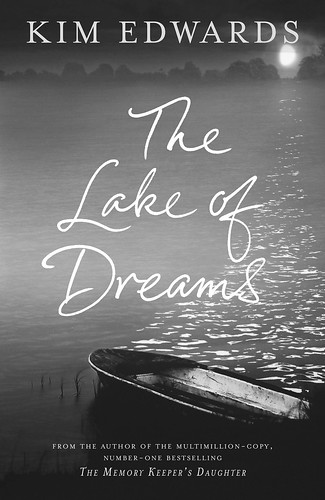Columnist Rosella LaFevre sets out to solve the mystery of her grandmother’s past.

There tends to be one question the most introspective people ask themselves at one point or another – “Who am I?” I feel like I’ve been working to figure that out for my entire teenage life.
As far as I can tell, there are several factors that make a person who they are. There’s your name, your childhood, your morals, your family and your friends. These are only parts of the whole equation, but for me, I find a large part of my identity comes from my name: Rosella Eleanor LaFevre.
And for some, such as Lucy Jarrett in the novel “The Lake of Dreams,” by Kim Edwards, part of how we define ourselves is through our family history and our knowledge of our relatives.
Jarrett, who returned home to upstate New York 10 years after her father’s accidental death, became consumed with the search for the truth about her ancestor Rose. Rose, who readers can assume was swept under the rug for her involvment in the suffrage movement, was forced to leave her daughter Iris with the girl’s uncle, Joseph.
While digging through historical artifacts and a slew of old letters and articles, Jarrett believed learning more about Rose was key to understanding her father’s death and herself. The reasons why Jarrett’s father’s family kept Rose a secret were, she believes, deeply connected to the reasons why her father and uncle fought just before her father died.
For me, the belief that our families influence our personalities and shape our lives is a strong conviction, and one that is wrapped up in my name. I use both my first and middle names because I am named for both of my grandmothers.
Eleanor Hartman Petrich, my 79-year-old maternal grandmother, is a strong woman who survived two kinds of cancer. Rosella Hager LaFevre, my paternal grandmother, died of uterine cancer when my father was a toddler so I’ve never known much about her.
While reading Edwards’ book, I began to wonder why, after my grandmother Rosella passed away, her husband remarried so fast and tried to pretend she never existed. I am now caught up in my questions about her, much like Jarrett was in Rose.
Jarrett, before returning home and between jobs, lived in Japan with her boyfriend Yoshi. When she arrived home to upstate New York and discovered the first clues in the cupola in the attic, Jarrett chased down her ancestor’s history with all too much luck.
While most of us find very little documentation of our ancestors apart from birth, wedding and death certificates, Jarrett managed to find a paper trail that ripped the story wide open.
I know the basics of my grandmother’s life – she was born on May 28, 1934, she got pregnant at 15 years old and her parents raised the baby. She married my grandfather and had three kids, but she died from cancer.
What I want to know, and what Jarrett so easily discovers, is the emotional story of her life – things, such as her temperament and her ideals. Perhaps it’s Edwards’ intention her narrator would find these things so easily to satisfy the reader’s yearnings.
Ultimately, though, the novel is disappointing and all too easy to put down, which I’m ashamed to admit I did. The first half of it is largely uneventful and the narration is plodding.
I hope as I delve further into my grandmother’s story and talk to her siblings the results are more captivating than Edwards’ novel.
At least I can be thankful it made me determined to solve my own mysteries.
Rosella LaFevre can be reached at rosella.lafevre@temple.edu.


Be the first to comment